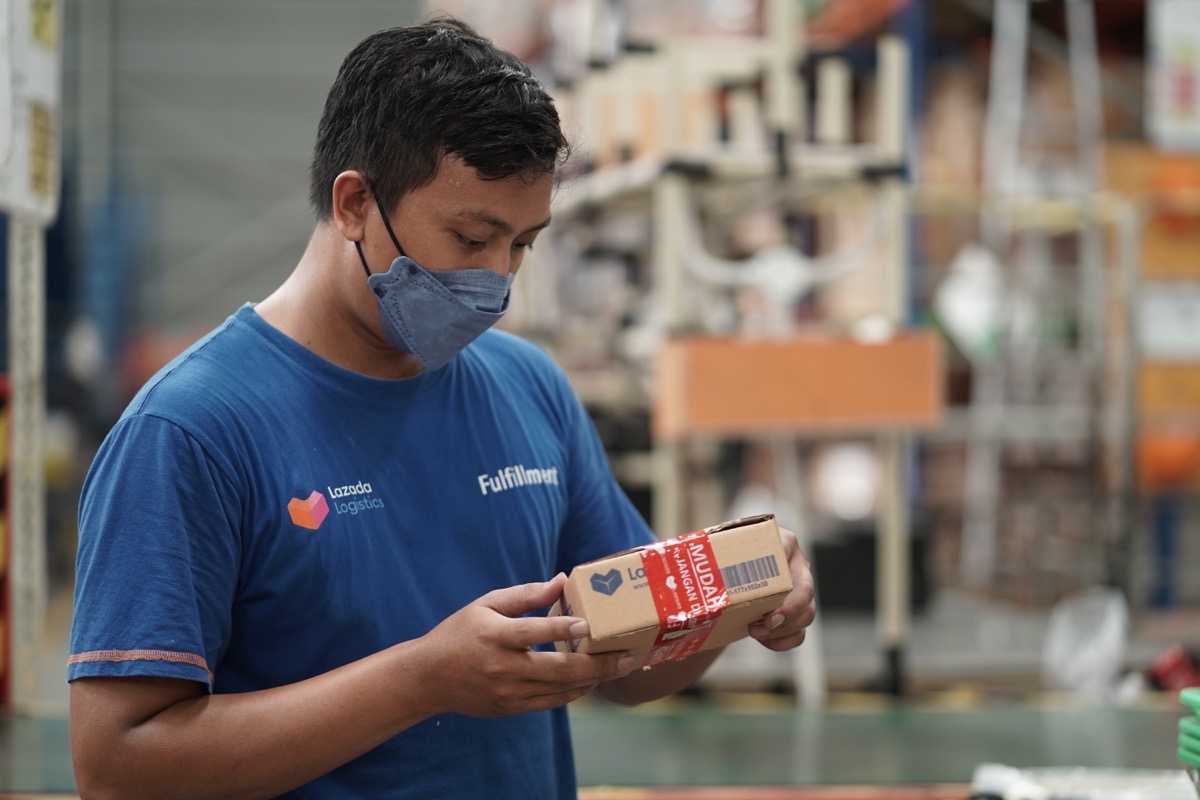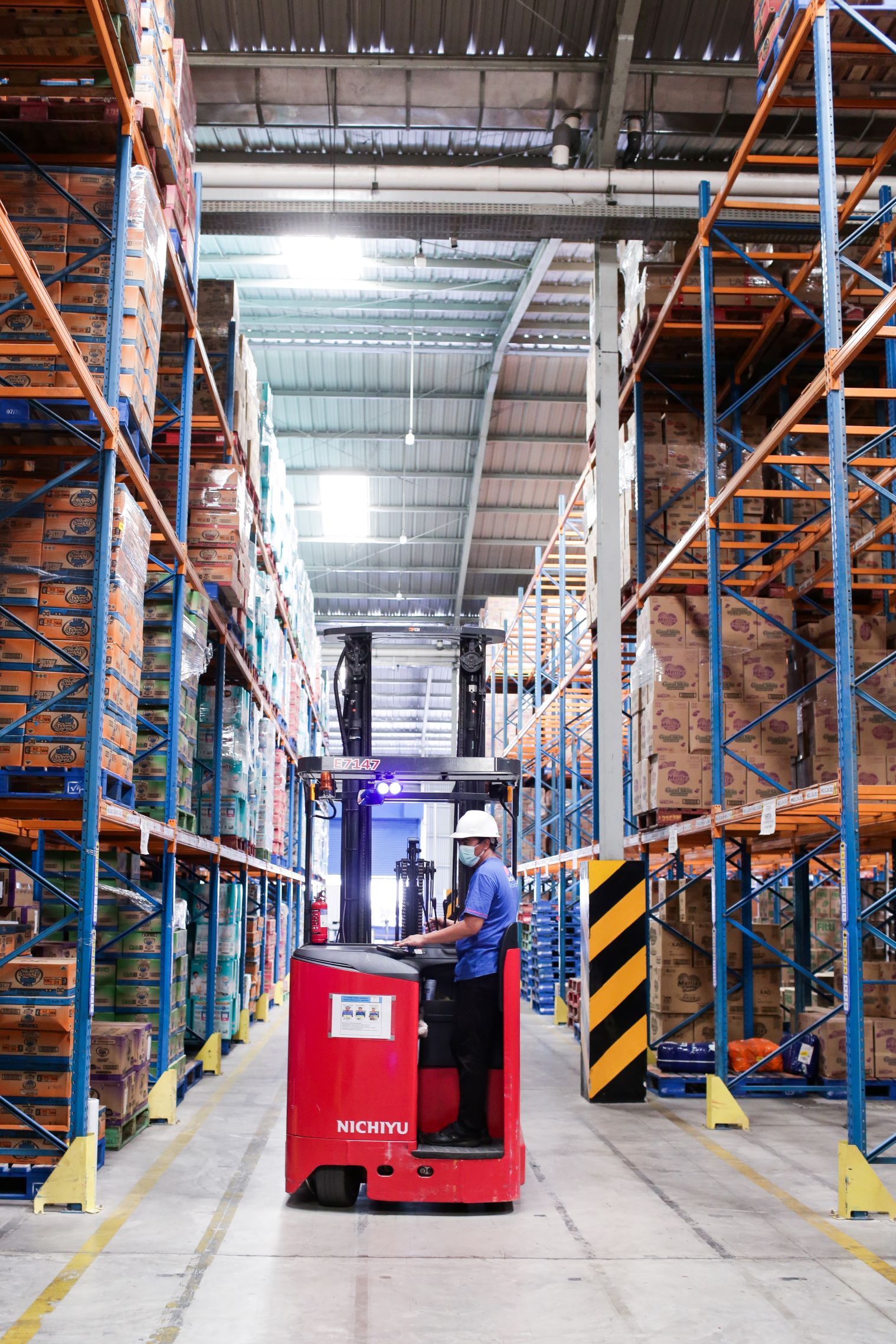Lazada Logistics, Lazada's Participation Excites the E-commerce Supporting Industry
Alibaba's technology implementation has been slowly rolling out since 2018 until now
Compared to other players E-commerce others, Lazada is one of the pioneers in developing own logistics technology. For companies e-commerce, managing their own logistics means that they have the power to standardize services for consumers. The spirit is that consumers in big cities and in layer cities can enjoy comparable delivery speeds.
That's the ideal hope. However, this condition cannot be generalized to Indonesia, which has thousands of islands, so there are different challenges. On the other hand, the smooth delivery speed is very influential on the business sustainability aspect for the company.
Lazada Indonesia VP Logistics Strategy Ratih Dwiastuti said that Lazada's efforts to continue to improve its logistics services were getting better from year to year, precisely in 2015 when a new initiative began.
“Lazada is one of the pioneers who has invested capital in logistics since 2015. Its implementation is not limited to warehousing only, also in delivery service with 3PL (company providing services outsourcing logistics services). In essence, we want to improve logistics capabilities so that we can provide competitive services for customers and sellers," he said DailySocial.id.
What's more, support from its parent, Alibaba, makes it easier for the company to invest more logistics technology to Lazada Logistics. Among them, the application of Warehouse Management System (WMS) technology, supply chain, network allocation, delivery optimization, each of which is implanted in stages. “WMS [was implemented] in 2018, in terms of network and operational since 2020. So it has been running for more or less four years."

Of course, the final result is aimed at improving technology smart logisticsThe thing is faster delivery. Ratih said, the maximum delivery must arrive within two days for areas where there are many Lazada customers. In certain areas that require longer delivery times, companies also utilize the existing ecosystem in the industry to ensure equal distribution of services, supported by clear standard procedures.
"We're not just building technology, we're getting employees at Lazada and in the field accustomed to it tech-savvy because we really prioritize efficiency.”
Since it was founded in 2013, Cainiao, a specialized logistics business unit under Alibaba, chose a unique business model approach as it chose to be an open platform, working to quickly build industry partnerships and improve logistics services for businesses and consumers. As a result, businesses and consumers benefit from more stable and diverse logistics services, with greater transparency and competitiveness in prices and customer service.
Due to the complex nature of supply chains and cross-border logistics, SMEs often face issues such as collaboration along the value chain, cost management and real-time tracking. To mitigate these problems, Cainiao's business model facilitates the digitalization of the logistics value chain that includes seamless last-mile delivery, overseas warehousing, customs clearance and goods inspection processes, connecting traders, logistics companies and consumers to build a global supply chain and parcel network.
Thus, whether MSMEs want to improve customer experience with faster order fulfillment, reduce shipping costs to increase price competitiveness, or export to more countries without on-the-ground operations, Cainiao's logistics infrastructure such as bonded warehouses, regional logistics centers, international shipping routes and charter flights will be able to support a wide range of requirements to drive business success.
For businesses and consumers, Cainiao's logistics platform provides an alternative that can eliminate traditional supply chain inefficiencies, and integrate technology across the value chain to drive greater cost efficiencies.
Thanks to this approach, according to annual findings in 2019 cited by the company, Cianiao ranks fourth globally with the highest daily cross-border parcel volume, after UPS, Fedex and DHL.
Smart logistics owned by Lazada

Embracing a similar spirit to Cainiao, Ratih also believes that the true application of technology in logistics is about balancing costs and services. Indonesia itself is the country with the most expensive shipping costs because it is influenced by geographical conditions.
The Indonesian Logistics Association (ALI) even stated that another cause was the actions of thuggery and unscrupulous officers, especially at the port. ALI notes that as a result, transportation and container handling activities contribute up to 40% of total national logistics costs. Currently, the average domestic logistics cost is 21,48% of industrial production costs. However, in cities such as Makassar and Medan, logistics costs are above this average figure.
"From a macro perspective, the application of technology is quite good and agile, at least there is an application. But how to integrate existing logistics in Indonesia is a story in itself. Lazada through its network solutions can be integrated. Our job is to get from point A to B.”
Smart logistics It also has something to do with efforts towards a green economy. He said, with integration between companies to open the network, the impact is that there will be fewer vehicles on the road, and the carbon emissions released will also be reduced. "How can this efficiency make Lazada more competitive?"
As an illustration, Lazada has two internal logistics solutions, namely Lazada eLogistics (LEL) and Lazada Express (LEX). LEL manages fulfillment and logistics with third-party logistics providers, while LEX handles shipping packages to customers (last-mile delivery service). Now these two solutions have been merged into one Lazada Logistics brand, the inauguration of which took place in August last year.
At the same time, Lazada Logistics also introduced services multi-channel logistics (MCL). MCL provides a single stock fulfillment solution to help e-commerce enabler and brands on any e-commerce platform seamlessly. Lazada Logistics will fulfill and deliver all orders, both from transactions on Lazada and on other e-commerce platforms.
With this mechanism, Lazada will store products from partners and merchants, so that order handling and delivery is efficient via Lazada's fleet, third party logistics partners (3PL), or other designated fleets.
Merchant Those who join MCL can manage flexibility and agility in inventory control, freeing them from logistics problems that require high operational capital costs to fulfill orders, for example the need to maintain warehouse infrastructure and delivery fleets. They also avoid the obstacles of building a wide operating network with limited economies of scale.
Not only MCL, the company also provides Fulfillment by Lazada (FBL) services. This service covers everything from warehousing or storing products in Lazada's warehouse, packaging, and sending products to customers.
For Ratih, all of the above initiatives strengthen the company's path to becoming an open aggregator company multi-platform e-commerce. Companies can also attract more merchants from various business scales to take advantage of this solution. For example, MCL is suitable for SMEs that have previously relied on their own sales channels.
“For example, this UKM already has a website. Now with MCL introducing its product to an area of potential that already exists seller Lazada first. Maybe in that area already multi-platform e-commerce, but social commerce. We can start from there.”
As for FBL, it allows merchants to use it according to their needs, for example warehouse Of course you can, if it's specific to certain items you can alsosetup. There are also those who already have a warehouse but don't have a logistics fleet, we can target that. Unfortunately, he did not mention how many merchants have utilized this solution. Just conveyed, there is one merchant from the premium brand Lazada who has joined.
The two solutions above are proof of the company's capable supply chain infrastructure and logistics capabilities, with intelligent inventory and route mapping solutions supported by data and technology.
Ratih explained that the supply chain flow of goods in and out of Lazada's warehouse is supported by the two technologies above. For example, for every item a consumer buys from an SME merchant, the system will automate where the item is stored. Whether from the Lazada warehouse or the merchant itself. The placement of merchant goods in the warehouse has also been adjusted to categories that must be closest to them packer, usually placed items of that nature fast moving.
"Process delivered has also been automated. "In the consumer application, there will be recommendations for consumers which logistics service is cheaper to use, whether to use LEX or not."
More Coverage:

If it turns out that the goods were sent directly by the merchant, the Seller Center system will process recommendations according to which logistics service is best for their location and the buyer, before arriving at the hub to sort the goods. “From the sorting center it is taken to a smaller warehouse for the fleet front liners courier can deliver. Couriers can also send packages that areassign automatically based on sub-district."
All merchants can utilize the Lazada Logistics network with more than 400 facilities, consisting of warehouses, sorting centers, hub, which is spread across 80 cities in Indonesia, and gets the competitive advantage of Lazada which has control over comprehensive logistics operations. More than 85% of all packet pickups on first mile handled by Lazada's facilities.
It is claimed that Lazada Logistics is supported by more than 15 thousand employees and courier partners, the majority of whom use two wheels for delivery. last mile. Lazada Indonesia's main warehouse is in Cimanggis, West Java covering an area of 70 thousand square meters. Apart from that, other warehouse locations are in Surabaya and Medan.
The company also utilizes a smaller warehouse, called long tail warehouse, placed in cities with fast-growing populations of Lazada users. The warehouse has an average area of 2 thousand square meters which is specifically for storing certain goods that sell quickly, for example FMCG, health, hygiene and beauty. Currently located at four points, in the Jabodetabek, Balikpapan and Makassar areas.
There's also hub, namely the office used as a place for sorting goods. In these places, some of them have dual functions, as well as storage (storage) and shipping. The number is said to be 150 hubs spread throughout Indonesia.
“We continue to evaluate the location warehouse and see progress demandThis is because every year there seems to be a shift in trend, in terms of numbers seller and buyers. Recently it has grown from outside Jabodetabek. Our hubs also exist in Boyolali and Solo, for example. "In the fourth quarter we will try the Bali area," he concluded.
Sign up for our
newsletter
 Premium
Premium
